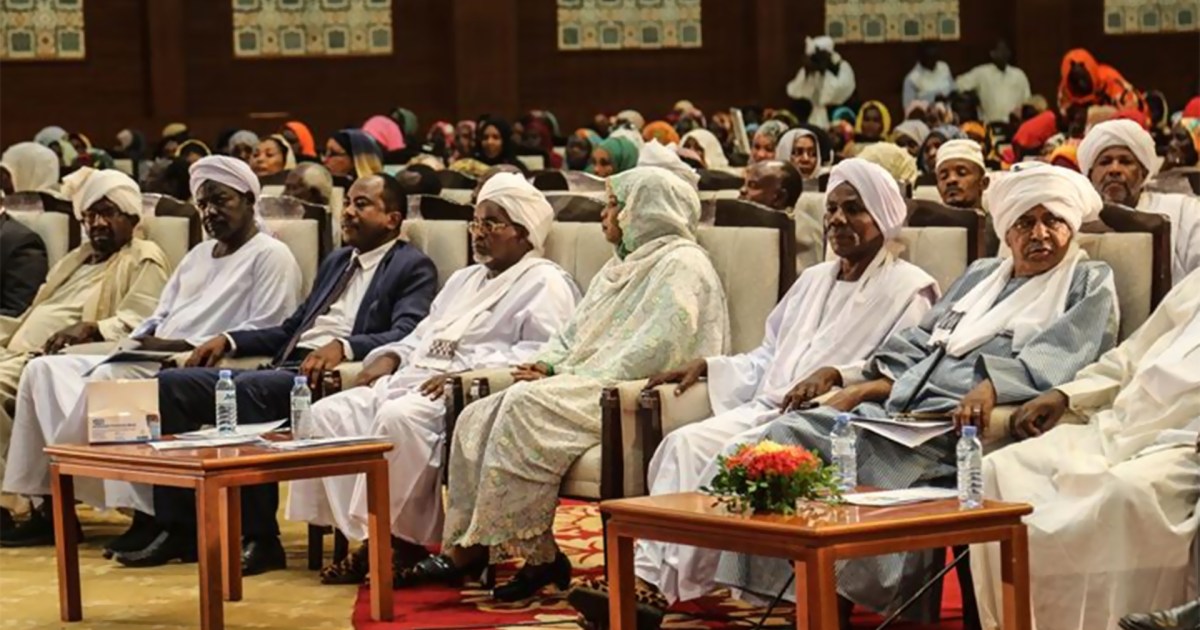On Saturday, Sudanese political parties proposed a project to make the transitional period a success, which includes 4 axes on peace, the constitution, federal governance and the formation of the elections commission.
This came at the launching ceremony of the "National Program" for the transitional period in the Friendship Hall in the Sudanese capital, Khartoum, with the participation of 33 parties.
The head of the Sudan Renaissance Alliance, Tijani Sisi, said - in his speech during the celebration - that the parties are proposing a national project to contribute to the national construction, and to reject exclusion and resentment.
Sisi announced the support of the participants in the (national program) for the peace agreement signed by the Sudanese government (on 3 October) with the armed movements in the capital of South Sudan, Juba.
For his part, the political secretary of the People's Congress, Abdel-Wahhab Saad, said on the sidelines of the celebration for Anatolia, "We have 33 political parties that signed the (National Program) project for the transitional period, and we handed a copy of it to the Chairman of the Sovereignty Council, Abdel Fattah al-Burhan, and his deputy, Muhammad Hamdan Dagalo (Hamidati), as The Prime Minister Abdullah Hamdok addressed us in writing.
He explained that the project (the national program) for the transitional period that was launched is based on 4 axes, including achieving peace, returning to the 2005 constitution to avoid fallacies about the constitutional document, approving federal government, and establishing an election commission.
"We extended the invitation to the ruling coalition parties in the Forces of the Declaration of Freedom and Change, and the Sudanese Professionals Association," Saad added. "We want to get out of the state of polarization for consensus on the success of the transitional period."
In turn, the political secretary of the Justice Party - one of the signatories of the national program project, Bishara Jumaa - said, "The launch of the national program project today is open to everyone and accepts all possible changes to make the transitional period successful."
Jumaa affirmed that the parties signatory to the draft national program agree on democratic transformation through elections.
"We live in severe political and tribal polarization, and an economic situation that does not bode well," Jumaa added. "We have presented our project to the Sovereignty Council and the cabinet and to all parties."
The parties called their project the "National Program Call Forces", after it was signed by the most prominent political forces, including the People's Congress - the late al-Turabi party - and the Democratic Unionist, the armed movements that signed peace agreements with the former regime, the Sudan Renaissance Alliance, as well as the Independents Bloc in Parliament. The former is headed by Abu al-Qasim Bartam, the Future Movement for Peace and Development, and splinter factions of the Umma Party.
On August 21, 2019, a transitional phase began in Sudan that would last for 39 months, ending with elections, during which power would be shared by the army and the Forces of the Declaration of Freedom and Change, the leader of popular protests.

